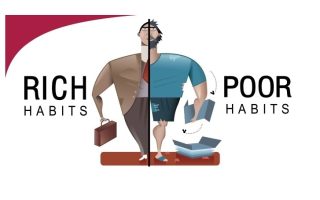Your 30s are often a transformative time. You may be advancing in your career, buying your first home, starting a family, or finally getting serious about long-term financial goals. With life moving quickly, estate planning might not feel like a top priority. But if you’re building wealth, protecting it is essential — and that’s exactly what estate planning is all about.
Estate planning isn’t just for the wealthy or the elderly. It’s a powerful tool to secure your financial future, protect your loved ones, and ensure your wishes are honored if life takes an unexpected turn. Whether you’ve already started planning or don’t yet know what a will even looks like, now is the time to get informed and take action.
Here are practical estate planning tips tailored for people in their 30s who want to build and protect their wealth — both now and for the future.
1. Know What Estate Planning Really Is
Let’s break a myth: estate planning isn’t just about death. It’s about control.
An estate plan is a collection of legal documents and strategies that let you control what happens to your money, assets, and dependents if you become incapacitated or pass away. This includes:
- A will (to name guardians and direct asset distribution)
- A durable power of attorney (to allow someone to manage your finances if you can’t)
- A healthcare proxy and living will (to outline medical wishes)
- Beneficiary designations (on retirement accounts and insurance)
- Trusts (optional, but useful in some cases for tax or control purposes)
Without an estate plan, your state’s default laws decide what happens. That can lead to delays, costs, and outcomes you may not agree with.
2. Revisit Your Plan Every Few Years
Even if you already have a basic estate plan, don’t let it gather dust. Life changes quickly in your 30s — marriages, divorces, births, deaths, moves, new jobs, and home purchases can all affect your plan. According to AARP, it’s best to revisit your estate plan every three to five years — or anytime you experience a major life change.
This ensures your plan reflects your current financial situation, family dynamics, and legal preferences. For example, if you bought a home in 2020 with your spouse, but are now divorced or relocated, you’ll want to make sure the right person is named on the deed or mortgage and in your will.
Think of updating your estate plan like updating your resume: the goal is to stay ready for whatever comes next.
3. Homeownership and Wealth Protection
For many 30-somethings, your home is your biggest asset. And if you bought during the COVID-19 pandemic, you likely locked in a historically low mortgage rate.
Homeowners who purchased a home with a 2% to 3% mortgage rate during the pandemic are reluctant to sell and take on a new mortgage at 6% to 7% interest rates.
This hesitation makes sense — staying put can be financially wise. But as you build equity, it’s essential to protect your home as part of your estate plan. Make sure:
- Your property title aligns with your wishes (joint ownership, right of survivorship, etc.)
- Your mortgage lender is aware of any changes to ownership or estate
- You’ve listed your home in your will or trust
- You have homeowner’s insurance and possibly umbrella insurance to protect from liability
If you plan to pass the property to a spouse or child, consider using a transfer-on-death deed, available in many states, to avoid probate.
4. Plan for Mental Incapacity — Not Just Death
Estate planning isn’t just about what happens after you die. It’s also about preparing for a time when you might be alive but unable to make decisions due to illness or injury. According to Harvard Medical School, 25% of people worldwide struggle with their mental health.
Mental illness, cognitive decline, and unexpected accidents can all affect your ability to manage your affairs. That’s why every estate plan should include:
- A durable power of attorney to manage finances
- A healthcare proxy to make medical decisions
- A HIPAA release to give your loved ones access to medical information
These documents ensure your finances and health choices are handled by someone you trust — without needing a court’s involvement.
5. Protect Your Kids (or Future Kids)
If you have children or plan to in the future, your estate plan becomes even more essential. In your will, you can name a guardian who would care for your children if both parents pass away. Without this, a court could choose someone you wouldn’t want — or worse, family members could fight over custody.
Also consider setting up a trust to manage assets for your children until they reach an age where they can responsibly handle money. This prevents a young adult from inheriting a lump sum at 18, which can lead to poor financial decisions.
Bonus tip: Ensure your life insurance is sufficient to support your children and that the beneficiary designations align with your estate plan.
6. Start Building Wealth Strategically
Estate planning works best when integrated with your broader wealth-building strategy. Think of it as the safety net under your financial ladder.
Here are key steps you can take in your 30s:
- Max out retirement contributions (401(k), Roth IRA)
- Build an emergency fund (3-6 months of expenses)
- Buy term life insurance (especially if others depend on your income)
- Diversify investments (don’t put all your money into one asset like your home)
- Keep your debt manageable (and have a plan to pay it off)
Once you start accumulating assets, estate planning ensures those assets are protected and go where you want them to.
7. Digital Assets Matter Too
We live online — and so does our wealth. In your estate plan, don’t forget to include your digital assets, such as:
- Bank accounts
- Cryptocurrency wallets
- Social media accounts
- Email addresses
- Cloud storage (photos, documents, etc.)
Make a secure list of logins and passwords, and designate someone to manage these accounts if you become incapacitated or pass away. Some platforms, like Google and Facebook, allow you to name a legacy contact directly.
8. Avoid Common Mistakes
Even smart people make estate planning mistakes. Here are a few to watch out for:
- Not creating a plan at all (yes, even you)
- Forgetting to update beneficiaries (especially after a divorce or birth)
- Failing to communicate your wishes to family members
- Overcomplicating things when a simple will would suffice
- Assuming a spouse automatically gets everything (this depends on your state and situation)
Remember: the goal is to simplify and protect. Don’t wait for perfection — just get started.
Estate Planning Is an Act of Wealth and Love
Being in your 30s is exciting, but it can also be overwhelming. There are careers to grow, relationships to build, and financial mountains to climb. Estate planning might seem like something you can put off, but doing it now is one of the smartest moves you can make.
Think of it this way: you work hard to build wealth. Estate planning ensures that wealth is protected — for your future, your family, and your peace of mind.
Start with a basic will. Name a guardian. Set up powers of attorney. Review your plan every few years. It doesn’t have to be perfect — it just has to exist.
As you evolve, so should your plan. Because when life happens — and it will — you’ll be glad you took the time to plan for it.





Comments